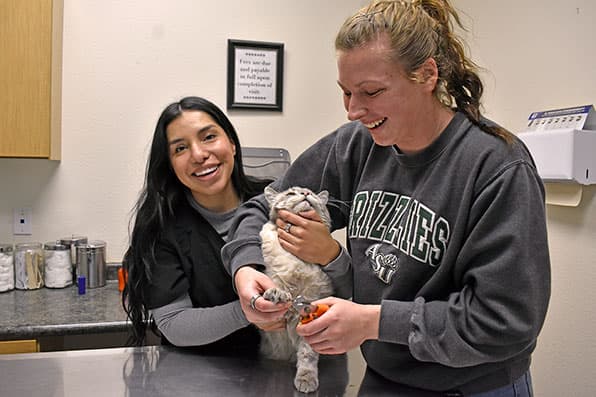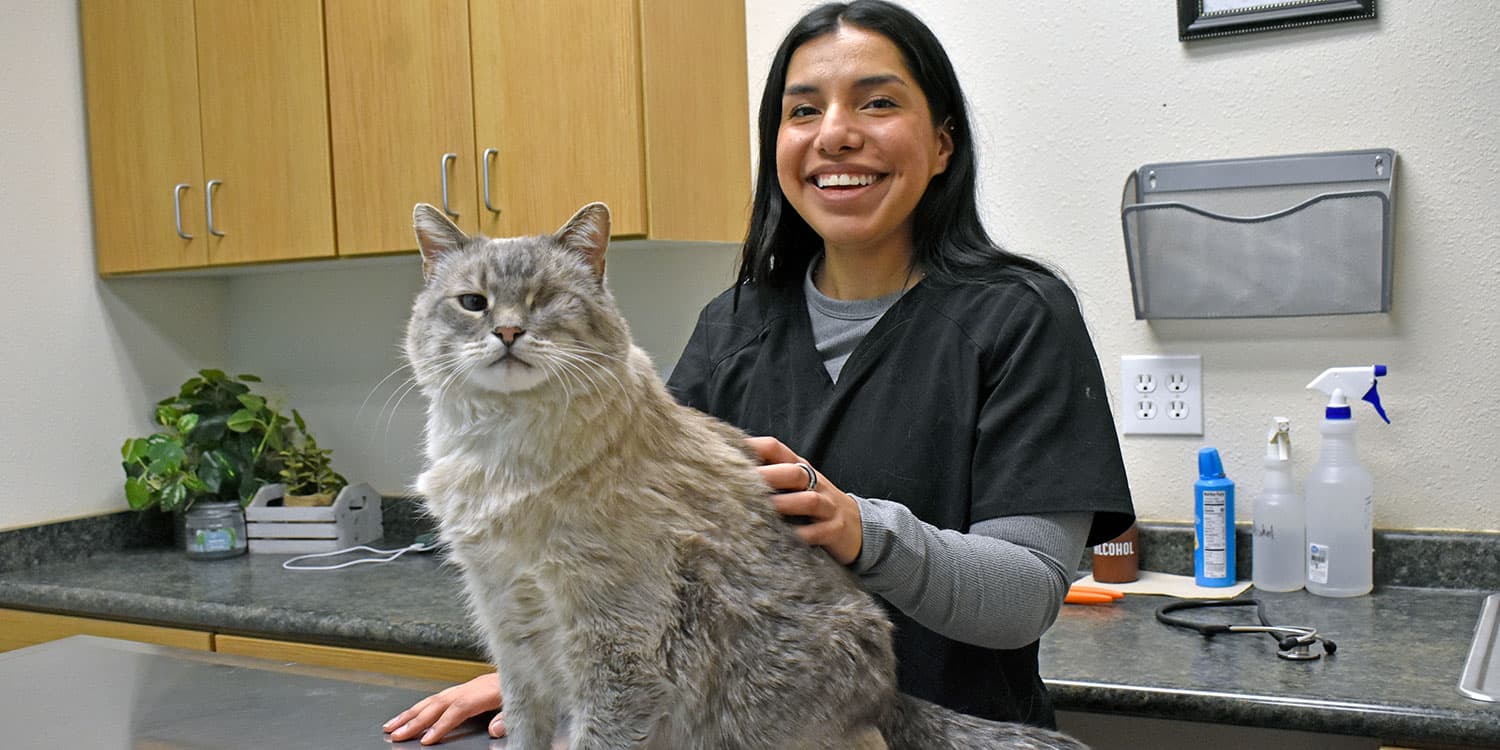Article by Julie Waechter, special to Adams State
Practice makes perfect preparation. That’s one of many things Lisseth Lemus ‘24 has learned during her roughly 2,000 hours interning at Alpine Veterinary Hospital over the last year. She completed her bachelor’s degree in cellular and molecular biology at Adams State University in December and is awaiting admission to veterinary school. Early exposure to domestic livestock on her uncle’s farm sparked her interest in the field.
“This experience made me more confident in my career choice. That’s the cool thing about internships at Adams State; you get real world experience while going to school,” she said. Lemus graduated debt free, having received the Woodward, Emma Salazar, and CAMP (College Assistance Migrant Program) scholarships.

Alternating between Alpine’s Monte Vista and Alamosa clinics, she worked with both small and large animals. As rural clinics, they also occasionally care for more exotic animals, such as bear cubs, owls, and the occasional alligator.
Kayla Henderson, D.V.M., co-owner of Alpine Vet explained, “Over the past 2.5 years, the Adams State internship program at Alpine Veterinary Hospital has grown and evolved remarkably. What started as a straightforward shadowing opportunity for 10 students interested in various aspects of the veterinary profession, wildlife biology, animal science, and agricultural production has transformed into an integral component of our veterinary team.”
She said the interns receive on-the-job training from registered veterinary technicians and veterinarians. Their roles include serving as exam room technicians, monitoring anesthesia, assisting with surgical preparation and procedures, preparing vaccines and medications, and providing inpatient nursing and care. Two former interns were hired as full-time veterinary assistants.
“As interns progress through the program, they begin working on more complex cases, assisting with diagnostic and treatment plans, and participating in client communications,” Dr. Henderson added. “Each of these students has made a significant impact on our practice, clients, and patients. We hope we have provided them with a comprehensive understanding of what a truly rural, mixed veterinary practice entails, and have had some fun along the way.”


